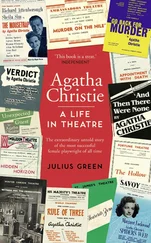Alice Green - Town Life in the Fifteenth Century, Volume 1
Здесь есть возможность читать онлайн «Alice Green - Town Life in the Fifteenth Century, Volume 1» — ознакомительный отрывок электронной книги совершенно бесплатно, а после прочтения отрывка купить полную версию. В некоторых случаях можно слушать аудио, скачать через торрент в формате fb2 и присутствует краткое содержание. Жанр: literature_19, foreign_antique, foreign_prose, Историческая проза, на английском языке. Описание произведения, (предисловие) а так же отзывы посетителей доступны на портале библиотеки ЛибКат.
- Название:Town Life in the Fifteenth Century, Volume 1
- Автор:
- Жанр:
- Год:неизвестен
- ISBN:нет данных
- Рейтинг книги:3 / 5. Голосов: 1
-
Избранное:Добавить в избранное
- Отзывы:
-
Ваша оценка:
- 60
- 1
- 2
- 3
- 4
- 5
Town Life in the Fifteenth Century, Volume 1: краткое содержание, описание и аннотация
Предлагаем к чтению аннотацию, описание, краткое содержание или предисловие (зависит от того, что написал сам автор книги «Town Life in the Fifteenth Century, Volume 1»). Если вы не нашли необходимую информацию о книге — напишите в комментариях, мы постараемся отыскать её.
Town Life in the Fifteenth Century, Volume 1 — читать онлайн ознакомительный отрывок
Ниже представлен текст книги, разбитый по страницам. Система сохранения места последней прочитанной страницы, позволяет с удобством читать онлайн бесплатно книгу «Town Life in the Fifteenth Century, Volume 1», без необходимости каждый раз заново искать на чём Вы остановились. Поставьте закладку, и сможете в любой момент перейти на страницу, на которой закончили чтение.
Интервал:
Закладка:
I would add but one word of personal explanation before I close. The only training or guidance which I have ever had in historical work was in a very brief period during which I was able to watch the method and understand the temper in which Mr. Green’s work was done. I never had the opportunity of visiting any English towns with him, or of following his studies in that direction. The most fruitful lesson which remains in my memory is that of a day spent in Ancona between two stages of an invalid journey, when I was able to see the intense enthusiasm with which, as was his habit, he made his way first to the Town-hall, and from the fragments of Greek and mediæval carving built into its walls, from harbour and pier, from names of streets, and the cathedral crypt, he extracted century by century some record of the old municipal life. It was doubtless some such remembrance as this that unconsciously led me in the course of reading, to turn to the story of the English boroughs. At the same time I have no doubt that I should always have been restrained from any idea of writing by my consciousness of the entire lack of adequate preparation for such a task, if I had not felt bound by an imperative obligation to make the attempt. When Mr. Green’s work was over he asked of me a promise that I would try to study some of those problems in mediæval history where there seemed to him so much that still needed to be done, and so much to be yet discovered. In this book I have made my first beginning toward the fulfilling of that promise. Such a work can only be closed with feelings of compunction and dismay.
Alice Stopford Green.14, Kensington Square,
March, 1894 .
CHAPTER I
There is nothing in England to-day with which we can compare the life of a fully enfranchised borough of the fifteenth century. Even the revival of our local institutions and our municipal ambition has scarcely stirred any memory of the great tradition of the past, of the large liberties, the high dignities and privileges which our towns claimed in days when the borough was in fact a free self-governing community, a state within the state, boasting of rights derived from immemorial custom and of later privileges assured by law.
The town of those earlier days in fact governed itself after the fashion of a little principality. Within the bounds which the mayor and citizens defined with perpetual insistence in their formal perambulation year after year it carried on its isolated self-dependent life. The inhabitants defended their own territory, built and maintained their walls and towers, armed their own soldiers, trained them for service, and held reviews of their forces at appointed times. They elected their own rulers and officials in whatever way they themselves chose to adopt, and distributed among officers and councillors just such powers of legislation and administration as seemed good in their eyes. They drew up formal constitutions for the government of the community, and as time brought new problems and responsibilities, made and re-made and revised again their ordinances with restless and fertile ingenuity, till they had made of their constitution a various medley of fundamental doctrines and general precepts and particular rules, somewhat after the fashion of an American state of modern times. No alien officer of any kind, save only the judges of the High Court, might cross the limits of their liberties; the sheriff of the shire, the bailiff of the hundred, the king’s tax-gatherer or sergeant-at-arms, were alike shut out. The townsfolk themselves assessed their taxes, levied them in their own way, and paid them through their own officers. They claimed broad rights of justice, whether by ancient custom or royal grant; criminals were brought before the mayor’s court, and the town prison with its irons and its cage, the gallows at the gate or on the town common, testified to an authority which ended only with death. 1 1 The right of pit and gallows was never formally revoked. The last case was under Charles I. (Rogers’s Agriculture and Prices, i. 132). The gallows at Southampton stood on the common; in Colchester at the end of East Street.
In all concerns of trade they exercised the widest powers, and bargained and negotiated and made laws as nations do on a grander scale to-day. They could covenant and confederate, buy and sell, deal and traffic after their own will; they could draw up formal treaties with other boroughs, and could admit them to or shut them out from all the privileges of their commerce; they might pass laws of protection or try experiments in free trade. Often their authority stretched out over a wide district, and surrounding villages gathered to their markets and obeyed their laws; 2 2 The Inquisition de quo Warranto, Ed. I., proves that S. Martin’s and other villages were under the jurisdiction of Canterbury; inquests at these places were held by the city coroner. York had a territory of 2,700 acres. (Agric. and Prices, iv. 579.) The burgesses of Dorchester claimed the right to weigh all goods within twelve miles of the town. A special statute was passed in 1430 “that they shall not be disturbed of their right,” in consequence of the Act of 1429 ordering weights and measures in every town. (9th Henry VI. cap. vi.) Other instances, such as Norwich, Nottingham, &c., are too numerous to give.
it might even happen in the case of a staple town that their officers controlled the main foreign trade of whole provinces. In matters that nearly concerned them they were given the right to legislate for themselves, and where they were not allowed to make the law, they at least secured the exclusive right of administering it; the King and the Parliament might issue orders as to weights and measures, or the rules to be observed by foreign merchants, but they were powerless to enforce their decrees save through the machinery and with the consent of the town. Arduous duties were handed over to them by the state – the supervision of the waters of a river basin, the keeping of the peace on the seas. They sent out their trading barges in fleets under admirals of their own choosing, and leaned but lightly on state aid for protection or revenge, answering pillage with pillage, and making their own treaties with the mariners of other countries as to capture and ransom and redemption of goods, and the treatment of common sailors or of “gentlemen” prisoners. 3 3 The mariners of the Cinque Ports drew up treaties with “French shipmen,” as to ransom for mariners, sailors, or fishing boats that might be captured on either side; the people of the coast were to be set free without charge, while “gentlemen” and merchants were to pay whatever the captors chose to ask. The shipowners and merchants of each port signed the compact; and all the towns of the coast from Southampton to Thanet joined the league. The document which was drawn up was handed over to the keeping of the Lord Warden in Dover, and in case of dispute messengers from the Ports rode there to see its provisions, or to make a copy for their own guidance. Hist. MSS. Com. v. 537-8; iv. i. 434.
The necessity of their assent and co-operation in greater commercial matters was so clearly recognized that when Henry the Seventh in 1495 made a league of peace and free trade with Burgundy the treaty was sent to all the chief towns in England, that the mayor might affix to it the city seal, “for equality and stableness of the matter;” and the same form was observed at the marriage of the Lady Mary. 4 4 Hist. MSS. Com. ix. 146; xi. 3, pp. 12-13, 171, 113. For 1340 see Ashley’s Arteveldes, 126-7.
Two hundred and twenty-six burghers sat in Parliament 5 5 Stubbs Const. Hist. iii. 484-488. Hallam Const. Hist. iii. 36. Gneist, who gives different figures, considers that one of the greatest dangers of the fourteenth and fifteenth centuries was the irrational and meaningless increase of town representation. (Constitution Communale, tr. by Hippert, i. 333, 338; ii. 9.)
beside the seventy-four knights of the shire; and each borough freely decided for itself what the qualifications of its members should be, and by what manner of election they should be chosen, at a time when for country folk all such matters were irrevocably settled by the king’s law. While the great lords with their armed bands of liveried retainers absolutely ruled the elections in the shires, in spite of all statutes of Parliament, the towns asserted their freedom to elect without fear or favour, and sent to the House of Commons the members who probably at that time most nearly represented the “people,” that is so far as the people had yet been drawn into a conscious share in the national life.
Интервал:
Закладка:
Похожие книги на «Town Life in the Fifteenth Century, Volume 1»
Представляем Вашему вниманию похожие книги на «Town Life in the Fifteenth Century, Volume 1» списком для выбора. Мы отобрали схожую по названию и смыслу литературу в надежде предоставить читателям больше вариантов отыскать новые, интересные, ещё непрочитанные произведения.
Обсуждение, отзывы о книге «Town Life in the Fifteenth Century, Volume 1» и просто собственные мнения читателей. Оставьте ваши комментарии, напишите, что Вы думаете о произведении, его смысле или главных героях. Укажите что конкретно понравилось, а что нет, и почему Вы так считаете.












